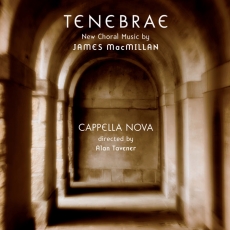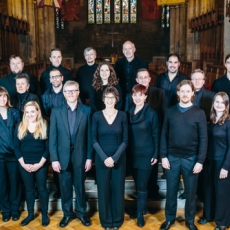MacMillan: Tenebrae - Cappella Nova - Tempo
Notwithstanding the phrase 'new choral music', James MacMillan's Missa Brevis was composed at an even more tender age than Ferneyhough's. In an in-depth interview published in the Linn booklet, MacMillan tells soprano Rebecca Tavener that at seventeen, he was absorbing choral music by Benjamin Britten and Kenneth Leighton, as well as Renaissance counterpoint. For performance today, he 'tidied up' the Kyrie and some word-setting in the Sanctus, while leaving the other movements - there is a concluding Ite Missa est - untouched.
MacMillan's Strathclyde Motets make greater demands than his early Mass on performers. The seven motets recorded here are Communion pieces, and they were written for Strathclyde University Chamber Choir. That mystical quality on which Rebecca Tavener remarks is heightened by the reverberance of Edinburgh's Greyfriars Kirk, resulting in a near-Brucknerian beauty and warmth. Mark O'Keeffe semi-improvises a fine trumpet accompaniment for In splendoribus sanctorum, a piece conceived for MacMillan's relatively untrained choir at St Columba's in Glasgow. His introit 'Give Me Justice' was also composed for that group.
Without question the disc's most dramatic works are the three Tenebrae Responsories with which it concludes. They were commissioned for eight of Alan Tavener's admirable Cappella Nova: two sopranos, two counter-tenors, two tenors, baritone and bass. The texts are from the Good Friday liturgy, and there are musical links with MacMillan's 1994 cantata Seven Last Words from the Cross. In addition to the spiritual models of Victoria and Gesualdo, he acknowledges the presence of Scotland's early genius, Robert Carver. Devices of ornamentation and bouche fermée are exploited imaginatively. MacMillan's resourcefulness in writing for singers of differing abilities make him one of today's most valued choral composers.

